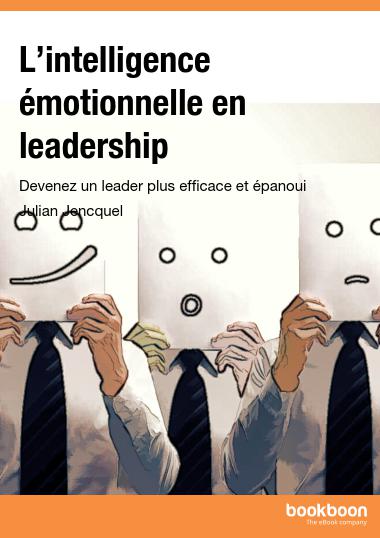How to measure and develop emotional intelligence

1. Take emotions into account
All emotions have a purpose, that is, they have a functional aspect and help us communicate. For example, if someone is hostile, we are in danger if we do not acknowledge it. I recommend that anyone interested in getting a full picture read The Expression of the Emotions in Man and Animals, by Charles Darwin.Emotions also help us communicate with ourselves. Display roles on how to deal with emotions are not always useful (e.g. ‘”boys don’t cry”); it is therefore important to identify real emotions. For example, if I feel guilt, it generally means that I am moving away from what is really important to me. If I ignore this, I am not communicating with myself.
Emotions are data, just like financial, strategic, budgeting or other data. It does not mean that all emotions are right and need to be acted upon. But we need to be open to emotions and get clues out of the information. We value emotions, but we do not overvalue them. Healthy openness to the information that emotions convey is the desired attitude.
2. Use a valid theoretical model to evaluate emotional intelligence
The Emotional Intelligence model developed by John Mayer and Peter Salovey has four branches: recognize, use, understand, and manage. The Mayer-Salovey-Caruso Emotional Intelligence Test (MSCEIT) is built upon this model.
a) Recognize (Immediate Read)
– Ability to read what is going on, for example is someone on board or not? We identify micro facial expressions, and more specifically subtle facial expressions (e.g. smiling and frowning at the same time).
– Ability to decide whether it is the right moment to address an issue with someone (e.g. pay rise).
– Ability to accurately identify emotion in individuals and the environment. Environments have an emotional read of their own (i.e. parks, architecture, etc.).
Recognizing emotions is a fundamental positioning skill (e.g. Police officer, customs agent, etc.). It positions a person with more information, so as to be more effective.
Emotional Intelligence is developable, but some skills more than others, with larger yields.
The Recognition branch of the MSCEIT can be used anywhere in the world, but there are cross-cultural differences that need to be taken into account. According to Paul Ekman, a psychologist who specializes in facial expressions, spoken or unspoken display rules that exist in a culture place emotions outside of recognition; this is most of what accounts for cross-cultural differences. Organizations also have display rules!
Recognition is a highly developable skill with three main focus points for improvement: 1) Pay attention; 2) Increase the capture rate (stop enough to take in what you are seeing); and 3) Get it right.
There is generally a cross-modality correlation: You can infer that if someone is good at recognizing emotions in facial expressions, he is likely to also be good at reading body language and recognizing emotions in the voice.
In the MSCEIT, a higher score is a better score, but there is not necessarily a ‘right’ or ‘wrong’ for each item in the test.
The hallmark of intelligence is flexibility. Higher scores are indicative of more flexibility, and lower scores of less.
b) Use (impact of emotion on the thinking style)
The head vs. heart approach is nonsense: every rational decision involves emotions. For example, advertising speaks to emotions; so even in a business-like and pragmatic environment, emotions play a key role. Emotions impact on every single decision that is made.
Mood-Task match:
– Inductive reasoning is favored when in a relaxed, positive mood.
– Deductive thinking is facilitated by a neutral or slightly negative mood. A slight sense of anxiety or concern makes thinking work more efficient.
Emotions impact on thinking and decision-making, and they also impact on memory. What you remember is impacted by your mood. Moods induce a mood-congruent memory bias. One remembers words or events matched to the mood of the time. In other words, memories come back in accordance with a given mood. Evolution explains why this is so: We have limited cognitive resources, so we have selective, mood-related memory. We do not need to remember all things all the time. This is why very often, when you do something else, ideas suddenly emerge.
The MSCEIT assesses the specific skill set of an individual in each area. A common problem is the mood-task mismatch. Flexibility between an inductive and deductive mood can be developed in terms of understanding, but it is much more difficult to put into practice.
c) Understand
What am I really feeling? How will I feel later?
– Ability to appreciate emotional complexity.
– Ability to understand the causes and progression of emotion.
Emotions are not random. They are like chess figures that have their own moves and degrees of progression. For example, when a staff member applies for a promotion that she has been denied before, she feels mostly frustrated and disengaged. The underlying emotions may be self-doubt and anger. But there is also hope, because otherwise she would not have bothered to be there and speak to the boss. One needs to hear it all, in order not to lose the person. Emotions are not just black and white; people who are too simplistic are forejudging too quickly and will not be effective leaders, coaches, etc.
d) Manage
Managing is not about controlling emotion. That is a common popularization. Nothing supports the idea that this is effective; in fact it is the opposite. Feeling and expressing emotions can be most effective in most contexts. Suppressing emotions carries a cost: trying not to think about something uses cognitive resources, which is energy consuming. As a result, problem-solving capabilities decrease. In a team, suppressing emotions has adverse effects: fewer suggestions and ideas to solve a problem are put forward. Also, there is a decrease in trust and an increase in blood pressure. Interpersonal relationships and psychological health are affected when emotions are suppressed.
Suppressing emotions impacts on your ability to self-regulate. The first thing that is important in managing: openness to emotion. If a child comes home saying that nobody played with him, one should not remove the child from the emotion by saying that it does not matter, that everything is fine. Instead, one ought to explain to him or her that this is what sadness feels like, but that it will pass (transience of emotion).
About the author: Julian Jencquel is a certified executive coach and trainer for the development of skills in emotional intelligence, creativity, and intercultural management. His clients are mostly executives of multinational companies that seek to improve their leadership and communication skills. He has written a French eBook for bookboon.com: “L’intelligence émotionnelle en leadership“.




